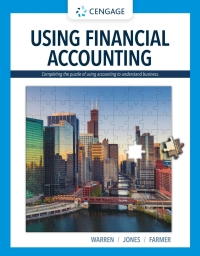Question
1.Identify the form of payment, form of acquisition, acquisition vehicle, and post closing organization? Speculate why each may have been used. 2.How was ownership transferred
1.Identify the form of payment, form of acquisition, acquisition vehicle, and post closing organization? Speculate why each may have been used.
2.How was ownership transferred in this deal? Speculate as to why this structure may have been used?
3.Describe the motivation for Berkshire and 3G to buy Heinz.
4.How will the investors be able to recover the 20% purchase price premium? Explain your answer.
5.Do you believe that Heinz is a good candidate for an LBO? Explain your answer.
6.What do you believe was the purpose of the $1.5 billion senior secured revolving loan facility, and the $2.1 billion second lien bridge loan facility as part of the deal financing package?
7.Why do you believe Berkshire Hathaway wanted to receive preferred rather than common stock in exchange for its investing $8 billion? Be specific
In a departure from its traditional deal making strategy, Berkshire Hathaway (Berkshire), the giant conglomerate run by Warren Buffett, announced on February 14, 2013, that it would buy food giant H.J. Heinz (Heinz) for $23 billion or $72.50 per share in cash. Including assumed debt, the deal is valued at $28 billion. Traditionally, Berkshire had shown a preference for buying entire firms with established brands and then allowing them to operate as they had been. Investors greeted the news enthusiastically boosting Heinz's stock price by nearly 20% to the offer price and Berkshire's class A common stock price by nearly 1% to $148,691 a share.
Unlike prior transactions, Berkshire teamed with 3G Capital Management (3G), a Brazilian-backed investment firm that owns a majority stake in Burger King, a company whose business is complementary to Heinz, and interests in other food and beverage companies. Heinz's headquarters will remain in Pittsburgh, its home for more than 120 years. The major attraction to Berkshire is the extremely well-known Heinz brand and the opportunity to use Heinz as a platform for making additional acquisitions in the global food industry. Berkshire is adding another widely recognized brand to his portfolio which already contains Dairy Queen and Fruit of the Loom. The strong Heinz brand gives it the ability to raise prices.
The deal is intended to assist Heinz in growing globally. By taking the firm private, Heinz will have greater flexibility in decision making not having to worry about quarterly earnings. Currently, about two-thirds of the firm's total annual revenue comes from outside the United States. Heinz earned $923 million on sales of $11.65 billion in fiscal 2013.At 20 times 2013 current earnings, the deal seems a bit pricey when compared to price to earnings ratios for comparable firms (Table 13.4). The risks to the deal are significant. Heinz will have well over $10 billion in debt, compared to $5 billion now. Before the deal, Moody's Investors Service rated Heinz just two notches beyond junk. If future operating performance falters, the firm could be subject to a credit rating downgrade. The need to pay a 9% preferred stock dividend will also erode cash flow. 3G will have operational responsibility for Heinz. Heinz may be used as a platform for making other acquisitions.

Step by Step Solution
There are 3 Steps involved in it
Step: 1

Get Instant Access to Expert-Tailored Solutions
See step-by-step solutions with expert insights and AI powered tools for academic success
Step: 2

Step: 3

Ace Your Homework with AI
Get the answers you need in no time with our AI-driven, step-by-step assistance
Get Started


